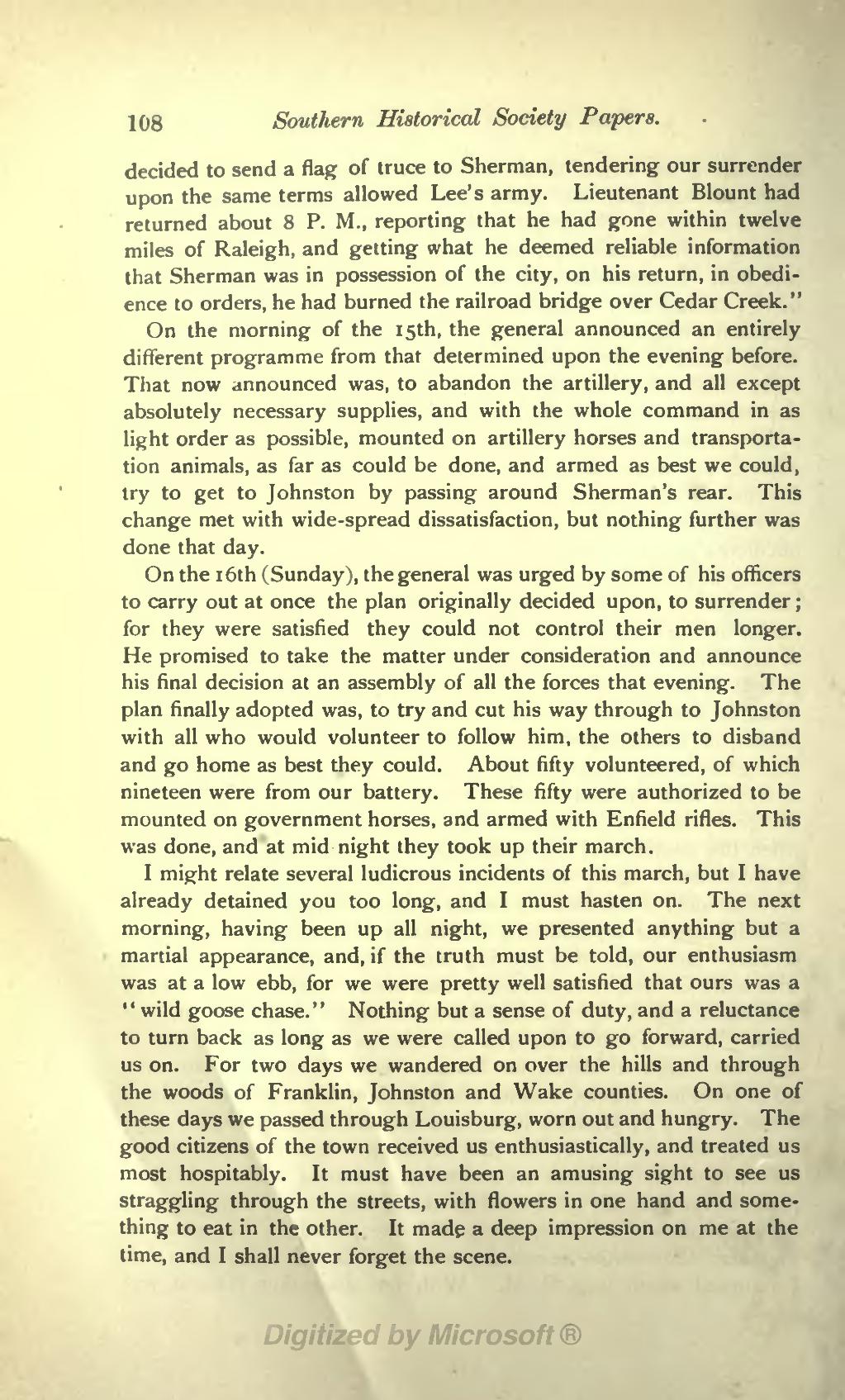108 Southern Historical Society Papers.
decided to send a flag of truce to Sherman, tendering our surrender upon the same terms allowed Lee's army. Lieutenant Blount had returned about 8 P. M., reporting that he had gone within twelve miles of Raleigh, and getting what he deemed reliable information that Sherman was in possession of the city, on his return, in obedi- ence to orders, he had burned the railroad bridge over Cedar Creek."
On the morning of the isth, the general announced an entirely different programme from that determined upon the evening before. That now announced was, to abandon the artillery, and all except absolutely necessary supplies, and with the whole command in as light order as possible, mounted on artillery horses and transporta- tion animals, as far as could be done, and armed as best we could, try to get to Johnston by passing around Sherman's rear. This change met with wide-spread dissatisfaction, but nothing further was done that day.
On the 1 6th (Sunday), the general was urged by some of his officers to carry out at once the plan originally decided upon, to surrender ; for they were satisfied they could not control their men longer. He promised to take the matter under consideration and announce his final decision at an assembly of all the forces that evening. The plan finally adopted was, to try and cut his way through to Johnston with all who would volunteer to follow him, the others to disband and go home as best they could. About fifty volunteered, of which nineteen were from our battery. These fifty were authorized to be mounted on government horses, and armed with Enfield rifles. This was done, and at mid night they took up their march.
I might relate several ludicrous incidents of this march, but I have already detained you too long, and I must hasten on. The next morning, having been up all night, we presented anything but a martial appearance, and, if the truth must be told, our enthusiasm was at a low ebb, for we were pretty well satisfied that ours was a " wild goose chase." Nothing but a sense of duty, and a reluctance to turn back as long as we were called upon to go forward, carried us on. For two days we wandered on over the hills and through the woods of Franklin, Johnston and Wake counties. On one of these days we passed through Louisburg, worn out and hungry. The good citizens of the town received us enthusiastically, and treated us most hospitably. It must have been an amusing sight to see us straggling through the streets, with flowers in one hand and some- thing to eat in the other. It made a deep impression on me at the time, and I shall never forget the scene.
